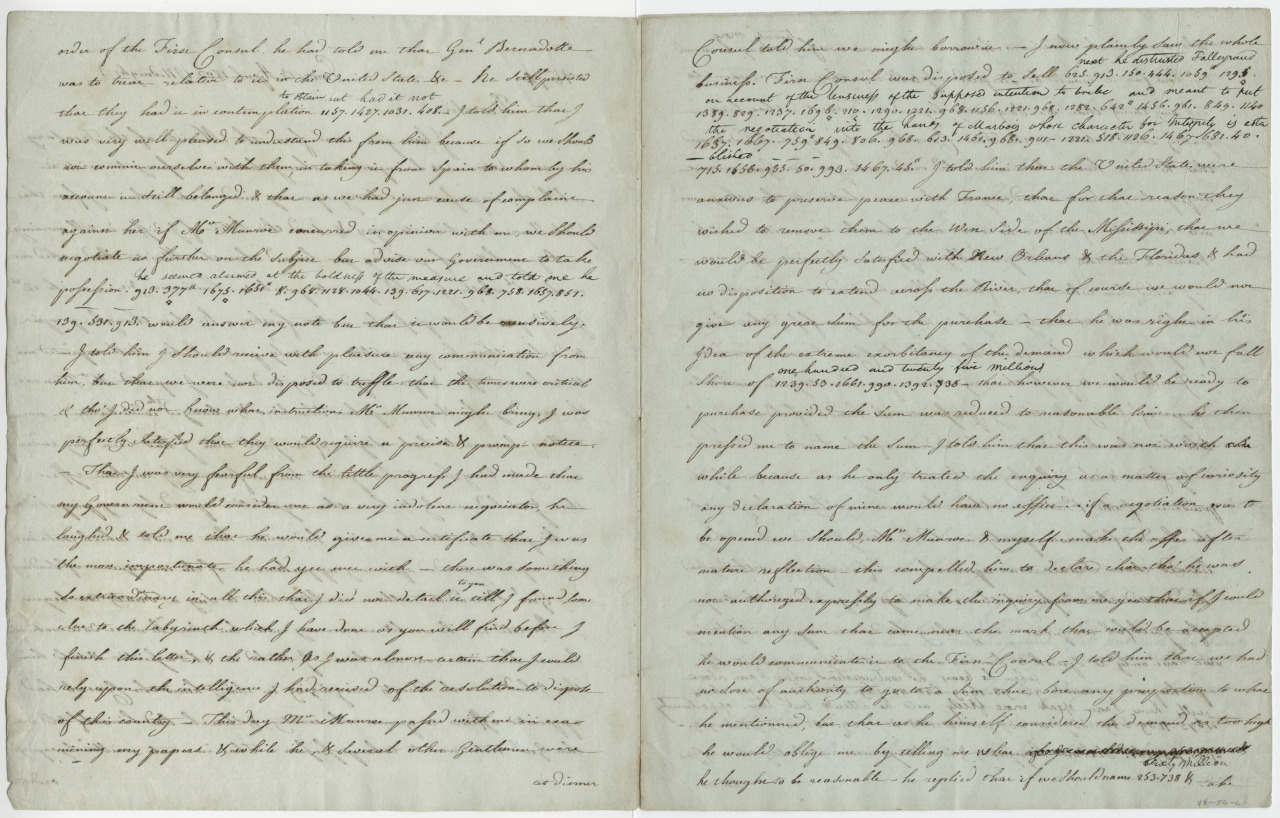Authors:
Historic Era:
Historic Theme:
Subject:
April 1955 | Volume 6, Issue 3


Authors:
Historic Era:
Historic Theme:
Subject:
April 1955 | Volume 6, Issue 3
Editor's Note: AMERICAN HERITAGE herewith publishes one of the most significant letters in American history—the letter which led to the great Louisiana Purchase. It was written to Secretary of State, James Madison, in the spring of 1803, by Robert R. Livingston, the American minister to France; of it came the vast continental expansion.
When Spain transferred Louisiana to France in 1801, the United States took alarm; France was too strong a nation for a neighbor. President Jefferson was even ready to conclude an alliance with Great Britain. He requested Minister Livingston to negotiate with Napoleon, the First Consul, for a port on the lower Mississippi, and he sent James Monroe to Paris to help in the negotiations.
But Napoleon, in the spring of 1803, his forces in Haiti defeated and a war with Great Britain pending, suddenly decided to sell—not only New Orleans, but the whole tremendous territory known as Louisiana.
Word of this decision came to Livingston from Tailleyland, French Foreign Minister, and from Barbie Marabous, French Finance Minister: and what follows on the succeeding pages is the fateful letter in which Livingston told Secretary Madison how the offer was made and how he responded.
An edited version of the letter was published a century or more ago, in Peter Force’s American State Papers, and it was summarized in Henry Adams’ History of the United States, but this is the first time the full text of the letter, with original spelling and punctuation, has been printed. Words in italics were in code in the original. The letter, recently discovered by Ralph Newman, of the Abraham Lincoln Bookshop, Chicago, is printed with the permission of the present owner.

No. 74
Paris, 13 April 1803 (Midnight)
Dear Sir,
I have just come from the Minister of the Treasury. Our conversation was so important that I think it necessary to write it while the impressions are strong upon my mind, & the rather as I fear that I shall not have time to copy & send this letter if I differ it till morning.
By my letter of yesterday you learned that the Minister had asked me on the 11th whether I would agree to purchase Louisiana &c. On the 12th I called upon him to press this matter further. He then thought proper to declare that his proposition was only personal but still requested me to make an offer, & upon my declining to do so as I expected Mr. Munroe the next day he shrugged up his shoulders & changed the conversation. Not willing however to loose sight of it, I told him I had been long endeavouring to bring him to some